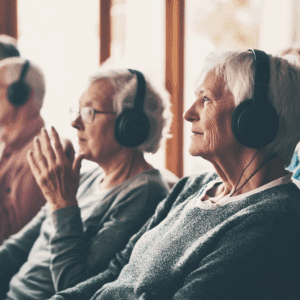Loneliness among older adults in New Zealand has reached a tipping point - and Age Concern NZ is calling for bold, systemic change. In a recent NZ Herald feature, the organisation renews its call for the creation of a Ministry for Loneliness, a dedicated government body tasked with tackling the isolation faced by thousands of older Kiwis.
This proposal isn’t new - similar ministries already exist in Japan and the United Kingdom - but it’s urgently needed in Aotearoa, where a rapidly ageing population, housing pressures, and weakening social ties are leaving too many seniors invisible and disconnected.
The Statistics Are Stark
According to Age Concern, up to one in four older New Zealanders is lonely, and the problem is especially severe for those living alone or facing health conditions such as dementia.
Social isolation isn’t just emotionally painful - it’s linked to serious physical health risks, including:
-
Depression
-
Cardiovascular disease
-
Weakened immune response
-
Cognitive decline and increased risk of dementia
-
Higher rates of mortality
With New Zealand’s 65+ population expected to double by 2048, these issues are set to grow unless proactive action is taken.
The Overlap Between Loneliness and Dementia
Loneliness is both a risk factor and a consequence of dementia. People with dementia may lose social confidence, struggle with communication, or be excluded from community events and family interactions. Without proper supports in place, they often experience compounded isolation - making their condition harder to manage and their lives harder to live.
Supporting connection is not just compassionate - it’s clinical.
What a Ministry for Loneliness Could Do
Age Concern envisions a Ministry that would:
-
Coordinate efforts across agencies - housing, transport, health, and community development
-
Fund and expand social prescribing - like connecting older adults to community groups, exercise classes, or befriending programmes
-
Embed loneliness screening in primary healthcare
-
Support age-friendly urban design that encourages intergenerational connection
-
Build awareness campaigns to combat stigma around ageing and loneliness
Importantly, this work would centre lived experience - consulting older New Zealanders, whānau, and caregivers directly to design solutions that work.
Global Models Show It’s Possible
The UK launched its Ministry for Loneliness in 2018, and Japan followed in 2021. These models have helped to elevate loneliness as a public health crisis, not just a personal issue.
While some critics argue that more bureaucracy isn’t the answer, Age Concern insists that naming the problem at the ministerial level brings visibility, funding, and cross-sector action - all of which are urgently needed.
The Role of Digital Tools
Technology can help bridge the gap for those who are isolated - but it must be accessible and intuitive. Tools like Elli Cares allow older people, including those living with dementia, to:
-
Receive personal voice and video messages
-
Get reminders for daily routines
-
Check in safely with loved ones
-
Track wellbeing and daily habits
-
Stay connected to a wider care team
When paired with community-based support, digital tools like these reduce loneliness and help maintain independence.
It’s Time to Treat Loneliness as a Systemic Issue
As the article highlights, loneliness is not just about lacking friends - it’s about not feeling seen, useful, or included. It’s about older adults being excluded from community planning, healthcare conversations, and daily decision-making.
A Ministry for Loneliness would validate this crisis and signal that, as a country, we’re not okay with letting people age in silence.
👉 Read the full article on NZ Herald








